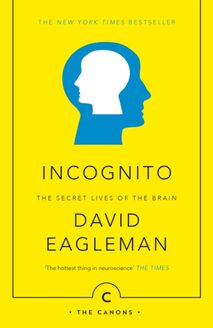-
 Univers
Univers
-
 Ebooks
Ebooks
-
 Livres audio
Livres audio
-
 Presse
Presse
-
 Podcasts
Podcasts
-
 BD
BD
-
 Documents
Documents
-
- Cours
- Révisions
- Ressources pédagogiques
- Sciences de l’éducation
- Manuels scolaires
- Langues
- Travaux de classe
- Annales de BEP
- Etudes supérieures
- Maternelle et primaire
- Fiches de lecture
- Orientation scolaire
- Méthodologie
- Corrigés de devoir
- Annales d’examens et concours
- Annales du bac
- Annales du brevet
- Rapports de stage
La lecture à portée de main
Vous pourrez modifier la taille du texte de cet ouvrage
Découvre YouScribe en t'inscrivant gratuitement
Je m'inscrisDécouvre YouScribe en t'inscrivant gratuitement
Je m'inscrisEn savoir plus
Vous pourrez modifier la taille du texte de cet ouvrage
En savoir plus

Description
Sujets
Informations
| Publié par | Canongate Books |
| Date de parution | 01 juin 2017 |
| Nombre de lectures | 0 |
| EAN13 | 9781786890184 |
| Langue | English |
Informations légales : prix de location à la page 0,0440€. Cette information est donnée uniquement à titre indicatif conformément à la législation en vigueur.
Extrait
Kent Nerburn was born and raised near Minneapolis. He studied American Studies at the University of Minnesota, then went on to Stanford University to study Religious Studies and Humanities, then to the Graduate Theological Union in Berkeley, where he received a Ph.D. in conjunction with the University of California at Berkeley. After several years living in Europe he returned to Minnesota and worked on the Red Lake Ojibwe reservation helping students collect the memories of the tribal elders. He has been writing about Native American history and culture for over twenty years.
Also by Kent Nerburn
Calm Surrender
Chief Joseph and the Flight of the Nez Perce
A Haunting Reverence
The Hidden Beauty of Everyday Life
Letters to My Son
Make Me an Instrument of Your Peace
Road Angels
Simple Truths
Small Graces
The Wolf at Twilight
Edited by Kent Nerburn
The Wisdom of the Native Americans
The Soul of an Indian
Native American Wisdom
First published in Great Britain in 2017 by Canongate Books Ltd, 14 High Street, Edinburgh EH 1 1 TE
www.canongate.co.uk
This digital edition first published in 2017 by Canongate Books
Copyright © Kent Nerburn, 1994, 2002
The moral right of the author has been asserted
First published in the United States of America in 1994 by New World Library, 14 Pamaron Way, Novato, CA 94949
British Library Cataloguing-in-Publication Data A catalogue record for this book is available on request from the British Library
ISBN 978 1 78689 016 0 eISBN 978 1 78689 018 4
For the silent ones
CONTENTS
FOREWORD
INTRODUCTION
Chapter 1 An Old Man’s Request
Chapter 2 Burnt Offerings
Chapter 3 Talking for the Grandfathers
Chapter 4 One Wily Old Indian
Chapter 5 A Land of Dreams and Phantasms
Chapter 6 Junk Cars and Buffalo Carcasses
Chapter 7 Rooting for the Cowboys
Chapter 8 Taking Maize from Squanto
Chapter 9 Jumbo
Chapter 10 Ponytails and Jewelry
Chapter 11 The Selling of the Sacred
Chapter 12 Welcome to Our Land
Chapter 13 Tatanka
Chapter 14 Seeing with Both Eyes
Chapter 15 Shiny Soup
Chapter 16 The Stranger
Chapter 17 Leaders and Rulers
Chapter 18 Drunk on Jesus
Chapter 19 Pushing
Chapter 20 Revelations
Chapter 21 Half-breed
Chapter 22 The Song of History
Chapter 23 Storm
Chapter 24 Paha Sapa
Chapter 25 Wounded Knee
Chapter 26 The Promise
THE VOICE OF THE NATIVE HEART
A Foreword by Robert Plant
It’s a dirty familiar history
A story of broken treaties, giddy expansion, collision and relocation
Of abuse, denial and unfair advantage
As far from the Lone Ranger as one can imagine
For almost fifty years on journeys through the extremes of the New World
I have wrestled with the questions
And carried the weight of empire
For many years Kent Nerburn, too,
Has been immersed
In the inflamed frontier that
Separates and divides
Neither Wolf nor Dog takes us on a real life journey
Playing out the exhausted residue
The push and pull between our cultures
Bringing into sharp focus the fallout from the European slog
The consuming lurch and stampede for ‘more’
Here is revealed, with beauty and sensitivity,
A world of miracles and connections we can only marvel at
A world that reaches out
Staggering, but still alive,
Despite the havoc of the ‘covered wagon’ and cultural abuse
His characters twist and turn the imagination
As they reveal, slowly,
The wonders of the natural world and our relationships within it
Kent’s work has been my companion and will always remain so,
Otherworldly and evermore valuable to us
In the confusion of these modern times
This voicing of the remarkable spirit of an amazing people
PREFACE
O ver the years, Neither Wolf nor Dog has taken on a life I never anticipated. It has been handed from prisoner to prisoner in some of America’s toughest penitentiaries. It has helped Indian and white school children from places as diverse as South Dakota, Seattle, and the high New Mexico desert to begin talking, for the first time, about their similarities and differences. It has had Maoris in New Zealand passing copies to their white friends and compatriots, saying that this book would help them understand how the Maoris feel about the loss of their native land. And it has had Roman Catholic missionary priests in South America asking me if I would consider writing the same kind of book for the tribes with whom they lived and worked. It has even changed the course of the Missouri River by opening the eyes of an official of the Army Corps of Engineers who, after reading the book, used his authority to modify a damming and diversion project that was under his direction.
All these stories, and hundreds of others, have amazed and heartened me. But, of all the stories, one has touched me most deeply. It was told by an Ojibwe man who stopped at my house here in northern Minnesota to look at some old scaffolding I was selling. After discussing people we knew in common on the reservation, I gave him a copy of Neither Wolf nor Dog . I was a bit embarrassed, because the gesture seemed too self-promotional and self-congratulatory. But something told me that it was the right thing to do.
A few weeks later I got a call from the man. His words were fumbling; I could tell that the phone call was difficult for him. “I’m the guy you gave that book to,” he said. “I just want to thank you.”
I told him that no thanks were necessary.
“No,” he said, “I got to do this. See, I’ve been sad my whole life. Ever since I was a little kid, people always said to me, ‘Why are you so sad?’ They’d see me outside playing and I’d be sad. They’d see me sitting in a chair and I’d be sad. My own little kids, even they ask me why I’m so sad. But I couldn’t tell them. I was just sad. Then I read that book you gave me and for the first time I knew why I was sad. I sat at the table one day and just started talking to my family. I talked more than I ever talked. I just kept talking until I talked all the sadness out of me. Now I’m not sad any more and my family isn’t sad. I want you to know what you did. You are my brother and I want to thank you.”
I hung up the phone with tears in my eyes. No writer has ever received a greater gift than I did at that moment. One of my literary children had healed the heart of a wounded man and freed him from his isolation, giving him back to his family, and giving his family back to him.
This is the kind of moment that makes me so thrilled to see Neither Wolf nor Dog released in a new edition. Now this unique and surprising book will have a chance to touch more people and work its magic in new and unexpected places.
I often ask myself why this book has the enduring capacity to create such magic. After all, I never intended it to be more than an honest homage to the deep and earthborn wisdom of the Native people I have known. The answer, I believe, has something to do with memory and honesty.
I have never met an Indian person who didn’t somewhere deep inside struggle with anger and sadness at what has happened to their people, and I have never met an honest and aware non-Indian person in America who didn’t somewhere deep inside struggle with guilt about what we as a culture have done to the people who inhabited this continent before us. We can like each other, hate each other, feel pity for each other, love each other. But always, somewhere beneath the surface of our personal encounters, this cultural memory is rumbling. A tragedy has taken place on our land, and even though it did not take place on our watch, we are its inheritors, and the earth remembers.
The small miracle of Neither Wolf nor Dog is that it carries this memory in the fabric of its narrative. The all-too-human characters who appear on its pages each struggle, in their own particular ways, to deal with that memory. They are inheritors of something that whispers in the wind and echoes from the land, and nothing they as individuals can do will silence these voices that rise up around them. Yet they search, for common meaning, common understanding, and common redemption. And, because they search, it does not matter that they are on opposite sides of a cultural chasm filled with tears and guilt and broken promises and dreams. They struggle together to reach across to each other, and, finally, they become more than friends — they become brothers and sisters.
This, I believe, is the key to the enduring relevance of Neither Wolf nor Dog . It is a call to each of us to become brothers and sisters. Brothers and sisters don’t have to understand each other; they don’t even have to like each other. But they have to trust each other and stand by each other. That’s what Dan and Grover and I, as well as Danelle and Jumbo and Wenonah and all the others learn to do in the course of this book. We stand, strong and adamant, within the confines of our own values and self-understandings, but we reach out and care for each other. They didn’t try to become white; I didn’t try to become Indian. We simply reached across the chasm of our differences and held each other in common embrace.
This is no small accomplishment, especially in the relationships of whites to Indians. Too many white people I know — good and caring people who are deeply concerned with the plight of Indian people and the tragic history of their last several centuries on this continent — try to “become” Indians or, at least, try to become one with Indian experience. They take on the trappings, they romanticize, they try to right the historical wrong through a great outpouring of empathy, or try to enhance their own identity by appropriating Indian values or belief. In the process, they distort the reality of the people about whom they care so deeply, and turn them into a reflection of their own needs.
This is exactly what Dan and Grover and all the others would never let me do. They remained resolutely and unashamedly themselves
-
 Univers
Univers
-
 Ebooks
Ebooks
-
 Livres audio
Livres audio
-
 Presse
Presse
-
 Podcasts
Podcasts
-
 BD
BD
-
 Documents
Documents
-
Jeunesse
-
Littérature
-
Ressources professionnelles
-
Santé et bien-être
-
Savoirs
-
Education
-
Loisirs et hobbies
-
Art, musique et cinéma
-
Actualité et débat de société
-
Jeunesse
-
Littérature
-
Ressources professionnelles
-
Santé et bien-être
-
Savoirs
-
Education
-
Loisirs et hobbies
-
Art, musique et cinéma
-
Actualité et débat de société
-
Actualités
-
Lifestyle
-
Presse jeunesse
-
Presse professionnelle
-
Pratique
-
Presse sportive
-
Presse internationale
-
Culture & Médias
-
Action et Aventures
-
Science-fiction et Fantasy
-
Société
-
Jeunesse
-
Littérature
-
Ressources professionnelles
-
Santé et bien-être
-
Savoirs
-
Education
-
Loisirs et hobbies
-
Art, musique et cinéma
-
Actualité et débat de société
- Cours
- Révisions
- Ressources pédagogiques
- Sciences de l’éducation
- Manuels scolaires
- Langues
- Travaux de classe
- Annales de BEP
- Etudes supérieures
- Maternelle et primaire
- Fiches de lecture
- Orientation scolaire
- Méthodologie
- Corrigés de devoir
- Annales d’examens et concours
- Annales du bac
- Annales du brevet
- Rapports de stage




















